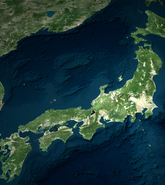NEWARK, CA – May 6, 2020 – The world is experiencing the extraordinary crisis of the COVID-19 pandemic, coupled with the never-ending climate crisis and escalating cyber threats. Markets, supply chains, economies, societies and assets can be highly susceptible to shocks and damage from these dynamically shifting risks, posing major challenges to understanding the impacts of these risks and to recovery. Today, at the annual Exceedance® conference, RMS, the world’s leading catastrophe risk solutions company, underscored the high cost that both acute and chronic risks pose while demonstrating that informed decision-making requires next-generation risk insights. To help address these challenges, RMS announced new model updates during the conference – focusing on infectious diseases, climate and cyber risk.
During his keynote presentation today, Mohsen Rahnama, Executive Vice President, Models, at RMS, compared lessons from COVID-19 to the response to climate change: “Over the last 120 days, every daily action has been critical to flattening the COVID-19 curve and has given us more data to gain insights into outcomes; similarly, climate change has gradually influenced risk over the last 120 years and will for the years to come. In turn, actions taken annually by companies and organizations will be equally critical to both understanding the totality of the risks and impacting outcomes. The effects span all parts of the insurance value chain from acute risks arising from catastrophic events, such as hurricane landfalls, to chronic risks, such as coastal flooding at high tide.”
In the same keynote, Pete Dailey, Vice President, Model Development, at RMS, stressed that science, data and models have together brought higher confidence to the relationship between climate change and insured perils. “One example is sea level, which we know, based on observations and physics, is rising globally and will continue to rise in the future. RMS is moving forward on two fronts: first, keeping cat models up to date with the latest in climate science, and second, developing new ways of projecting risk based on the future climate, in the near term as well as the long term. In addition, due to COVID-19, extreme weather events that occur this year, such as a major hurricane landfall, will potentially present a number of new challenges for insurers, such as with deployment of adjusters and claims processing, potentially while communities are social distancing. RMS Event Response services provide critical real- time insights for these types of events to help meet these challenges.”
Companies and governments are compelled to understand risks more deeply than ever before, and they need modern technology and the highest-quality, most-advanced models to accomplish this challenging task.
RMS has recently enhanced key models to help clients address the risks posed by these chronic and acute disasters.
- RMS Infectious Diseases Model
The RMS Infectious Diseases Model (IDM) provides a probabilistic view of loss that could result from a full range of infectious disease pandemics, including COVID-19, and epidemics ranging from influenza to Ebola. Updated most recently in the RMS LifeRisks® platform Version 2.7, the model captures the impact of infectious diseases on mortality and morbidity for multiple age groups in 59 different countries, and it considers the use of non-pharmaceutical interventions used to slow transmission throughout a population. Recent model updates capture improvements in global vaccine production and manufacturing capacity, the availability and efficacy of pharmaceuticals, country-specific pandemic response and the underlying health of an insured portfolio, leading to a better understanding of how different factors impact pandemic mortality. To assess the dynamic impact of the COVID-19 pandemic, RMS also offers projections on the number of cases, deaths and hospitalizations by region, accounting for regional mitigation measures. Clients can understand the expected impact of COVID-19 over a multi-month time horizon and get updated forecasts based on risk and response developments over time.
- RMS Climate Models
RMS offers robust analytics through a global suite of climate models for hurricane/typhoon, extratropical cyclone, flood, severe convective storm, winter storm and wildfire. Built on consensus science and recent empirical data, RMS models incorporate the most important aspects and recent observations around climate change to ensure a stable and dependable view of risk. New advancements with RMS Risk Intelligence™ and Risk Modeler™ 2.0 offer even greater flexibility and computational power for RMS models. Clients can analyze their book of business to measure current climate impacts including consensus trends due to climate change, leveraging either Risk Modeler 2.0 starting June 2020, their current RiskLink® solution or RMS Analytical Services. The results inform both expected and tail risks. The Europe Severe Convective Storm High Definition Models are the newest climate models to be added to the global climate model suite and are available through RMS Analytical Services now and on Risk Modeler 2.0 this summer.
- RMS Cyber Solutions
Initially released in February 2016 in collaboration with the Cambridge Centre for Risk Studies and eight insurance partners, the RMS cyber model has been well received in the insurance market. The very dynamic nature of cyber risk has translated to significant and regular annual improvements in the model since its very first release, most recently with the release of Cyber Solutions Version 4.0 in October 2019. Enhancements in Version 4.0 included exposure data enrichment, new hazard data, a cyber loss module and computation enhancements. RMS continues this trajectory and is making further enhancements in 2020 in its next release, Cyber Solutions Version 4.1, along with a brand new Cyber Underwriting capability, that includes rich new dashboards for simplified underwriting, which will be available by September 2020.
ENDS







